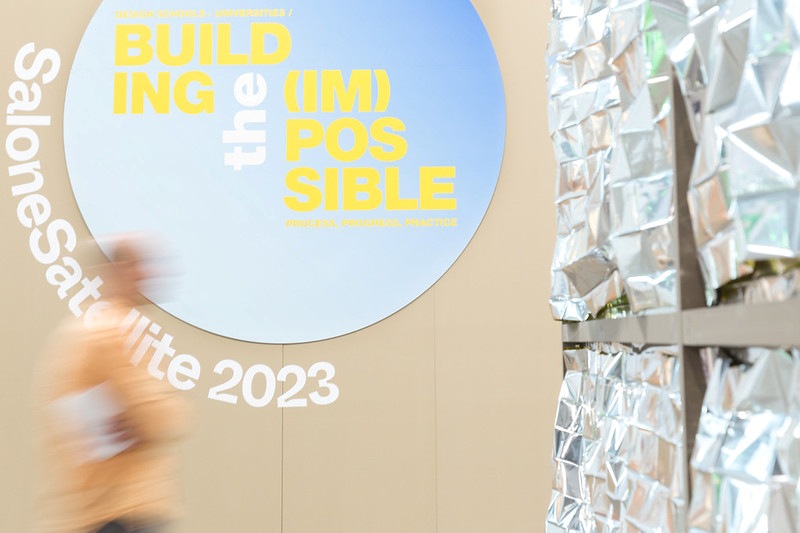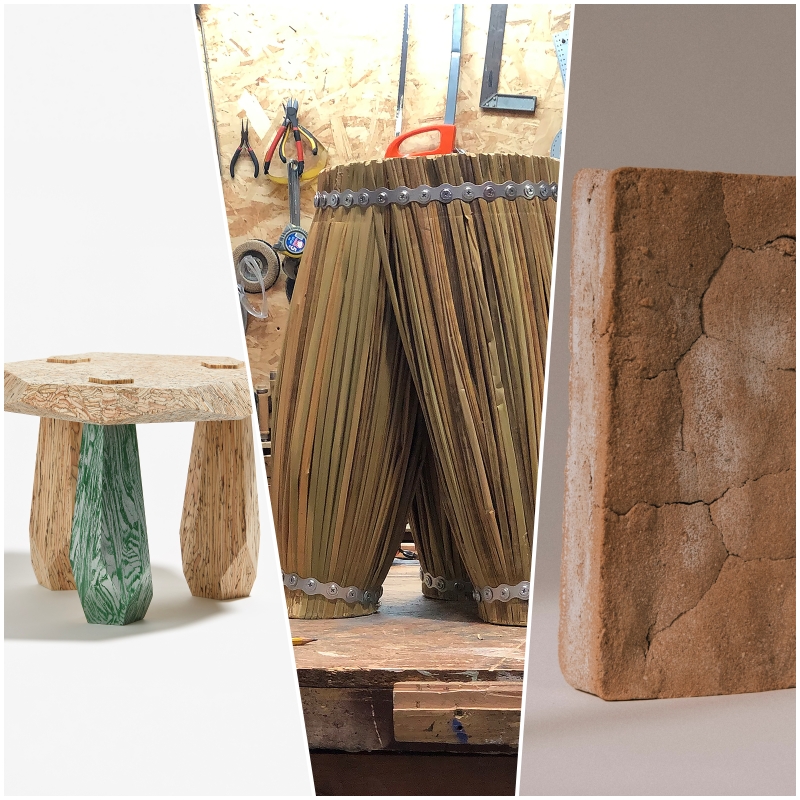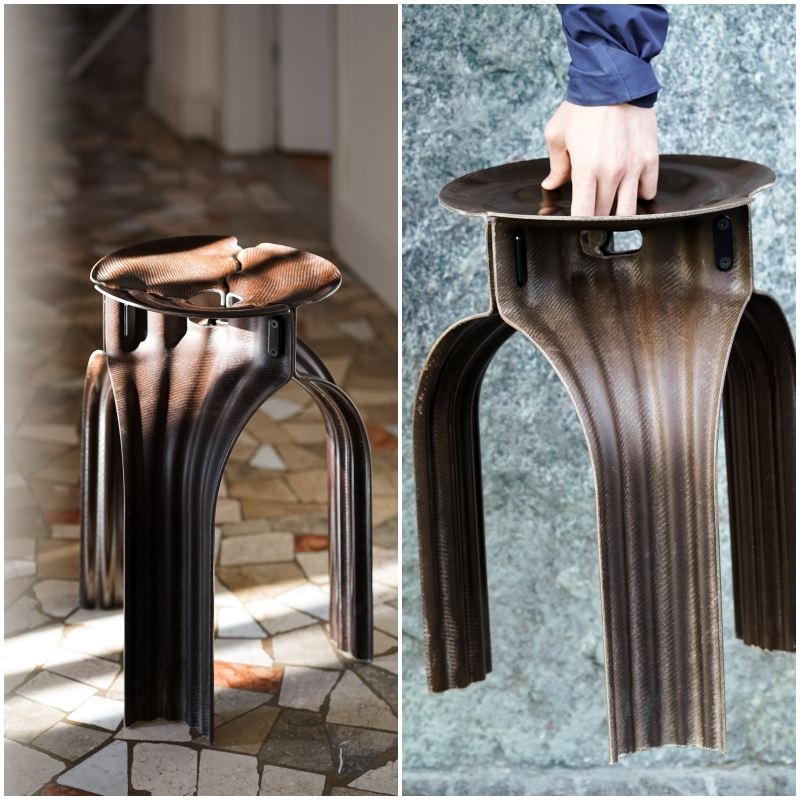Innovative yet Bound by Tradition
That is the gist of the winning projects at the 12th edition of the SaloneSatellite at the Salone del Mobile 2023 where projects from different countries with divergent design approaches were exhibited touching on the wide range of participation and multiplicity of thought processes at the most coveted design fair in the world.
 When Marva Griffin Wilshire, creator of the SaloneSatellite, a programme within the Salone del Mobile. Milano to facilitate relationship between businesses and young designers preparing to enter the profession, advised the new gen of designers, she meant every word of it as this was the basis of selecting the winners of the SaloneSatellite Award. She said, “Be yourself, do not try to copy famous projects or the style of somebody important. Let your creativity flow, but study, study, study the history of design to understand it deeply. Also, be also humble and listen to people with more experience, and finally keep an eye on the society you live in and above all on its essential needs.”
When Marva Griffin Wilshire, creator of the SaloneSatellite, a programme within the Salone del Mobile. Milano to facilitate relationship between businesses and young designers preparing to enter the profession, advised the new gen of designers, she meant every word of it as this was the basis of selecting the winners of the SaloneSatellite Award. She said, “Be yourself, do not try to copy famous projects or the style of somebody important. Let your creativity flow, but study, study, study the history of design to understand it deeply. Also, be also humble and listen to people with more experience, and finally keep an eye on the society you live in and above all on its essential needs.”
 And thus, with these tools of selection, the jury comprising of Paola Antonelli, Senior Design Curator, Architecture & Design Director, Research and Development, MoMA, Beppe Finessi, Design Critic, Gianluca Gessi, amongst others, unanimously selected the six winning projects, out of 100 entries. Innovation of process and tradition, championing the safeguarding of sustainable and community thinking, triumphed at the 12th edition of the SaloneSatellite.
And thus, with these tools of selection, the jury comprising of Paola Antonelli, Senior Design Curator, Architecture & Design Director, Research and Development, MoMA, Beppe Finessi, Design Critic, Gianluca Gessi, amongst others, unanimously selected the six winning projects, out of 100 entries. Innovation of process and tradition, championing the safeguarding of sustainable and community thinking, triumphed at the 12th edition of the SaloneSatellite.

The winners of Salone Satellite 2023 with Griffin and Mario Porro, President of Salone del Mobile Milano.
Projects by representatives of different countries of origin and provenance encompassed different geographic latitudes and design approaches took the attention of the design viewers. The first prize was awarded to Japan’s Honoka for his Tatami Refab, combining reclaimed tatami material and 3D printing. Second prize was to the Hong Kong-based Studio Ryte for its Triplex Stool, made using flax, a sustainable wood fibre. The third winning team was Ahokpe + Chatalin, appearing at SaloneSatellite as Belgium is Design, for their Kudoazò hammock, made from recycled fabric spun in Benin.
This year’s three special mentions were assigned the Róng Design Award, consisting of a one-month residency at the Rong Design Library in Hangzhou’s Yuhang district in China, promoter of the initiative. These were awarded to the Spanish Joaquin Ivan Sansone, currently living in Spain, for his cane Junki stool; to Korea’s Weonrhee, for the small Primitive Structure table, and Venezuelan-born Fragmentario, now living in the USA, for the Avocado Seed Brick project.

First: The Junki bench is born from research of creating a sturdy bench by Joaquin Ivan Sansone, Argentina. Second: Primitive Structure by Weonrhee, Republic of Korea that focuses on the cycle of the material and the primitive origins of the designer’s own culture. Third: Fragmentario’s “Avocado Seed Brick” made with avocado seeds and a binder made from Sargassum algae
“All three were chosen for their evident pursuit of research, and will be supported in integrating Chinese crafts and traditional materials into their creative processes. The aim is to introduce and promote the influence of Chinese crafts into the global design world, supporting the creativity and the growth of the young designers,” said Griffin.
Tatami Traditions Revisited
Honoka, Japan
“Tatami Refab”
 3D printing and reclaimed poor materials come together in a versatile project that innovatively reintroduces traditional culture into everyday life and the domestic spaces.
3D printing and reclaimed poor materials come together in a versatile project that innovatively reintroduces traditional culture into everyday life and the domestic spaces.
 Tatami is a process of mat weaving that is declining year by year in Japanese culture and in their bid to revive this tradition, Honoka have used the age-old method to create The Tatami Refab Project that re-embed Tatami into modern life using 3D printing technology.
Tatami is a process of mat weaving that is declining year by year in Japanese culture and in their bid to revive this tradition, Honoka have used the age-old method to create The Tatami Refab Project that re-embed Tatami into modern life using 3D printing technology.
Take Me with You
Studio Ryte, Hong Kong
Triplex Stool
 From lightweight to efficient structure; compactness to sustainability; the flax fibre Triplex Stool is an experimental furniture piece that responds to the nomadic lifestyle of the current era.
From lightweight to efficient structure; compactness to sustainability; the flax fibre Triplex Stool is an experimental furniture piece that responds to the nomadic lifestyle of the current era.

 “The Triplex stool pushes the physical limits of a stool; from structure to weight; assembly process to after-life. The super light module is made of biodegradable flax fibre, one of the strongest natural cellulosic materials found,” explains Dennis Cheung, architect, Studio Ryte.
“The Triplex stool pushes the physical limits of a stool; from structure to weight; assembly process to after-life. The super light module is made of biodegradable flax fibre, one of the strongest natural cellulosic materials found,” explains Dennis Cheung, architect, Studio Ryte.
Designed with a strategically curved geometry, the stool stands elegantly on its arches and embraces weight above. It is intended to be carried along when moving apartments or cities. Its stack-ability is ideal for shipping and storage.
Flax a sustainable, lightweight wood fibre, lends itself to a contemporary revisiting of powerful Brutalist language.
Breaking Barriers through Design
Ahokpe + Chatelin (Belgium is Design), Belgium
“Kudoazò”
 Estelle Chatelin and Georges Ahokpe, the duo of a textile designer and a weaver, have been in dialogue between Benin and Belgium, questioning the practices of weaving for domestic use. The design duo presented handwoven hanging beds and plaids within the Belgium is Design booth at the Salone.
Estelle Chatelin and Georges Ahokpe, the duo of a textile designer and a weaver, have been in dialogue between Benin and Belgium, questioning the practices of weaving for domestic use. The design duo presented handwoven hanging beds and plaids within the Belgium is Design booth at the Salone.
 “The designs are a result of dialogue of our two cultures, our studio works both in Benin and Belgium taking into account the reality on each territory,” they say.
“The designs are a result of dialogue of our two cultures, our studio works both in Benin and Belgium taking into account the reality on each territory,” they say.
 These pieces are part of the Ku do Azò collection. Conceived in Belgium and produced in Benin from recycled materials, this ancient object is an expression of sustainability channelled by a marriage of traditions and handiwork that break down geographical barriers and colonialist aspirations.
These pieces are part of the Ku do Azò collection. Conceived in Belgium and produced in Benin from recycled materials, this ancient object is an expression of sustainability channelled by a marriage of traditions and handiwork that break down geographical barriers and colonialist aspirations.
 “The hanging beds (hammocks) are the first pieces we developed in Benin. We wanted to make objects created on Beninese territory for export while questioning the flow of materials. Thus, we recovered sweaters imported from Europe which cover the African markets, we unknit them to reweave them in the hammocks. These hammocks are intended for interiors. We also created another version, in Belgium, with yarns from the end of the Belgian polypropylene factory stock, for outdoor use,” explains Estelle.
“The hanging beds (hammocks) are the first pieces we developed in Benin. We wanted to make objects created on Beninese territory for export while questioning the flow of materials. Thus, we recovered sweaters imported from Europe which cover the African markets, we unknit them to reweave them in the hammocks. These hammocks are intended for interiors. We also created another version, in Belgium, with yarns from the end of the Belgian polypropylene factory stock, for outdoor use,” explains Estelle.
“The Salone is an incredible place where creativity is bubbling. A place where the whole world can share its vision and expression of design. We are really proud to be a part of that,” she says.




